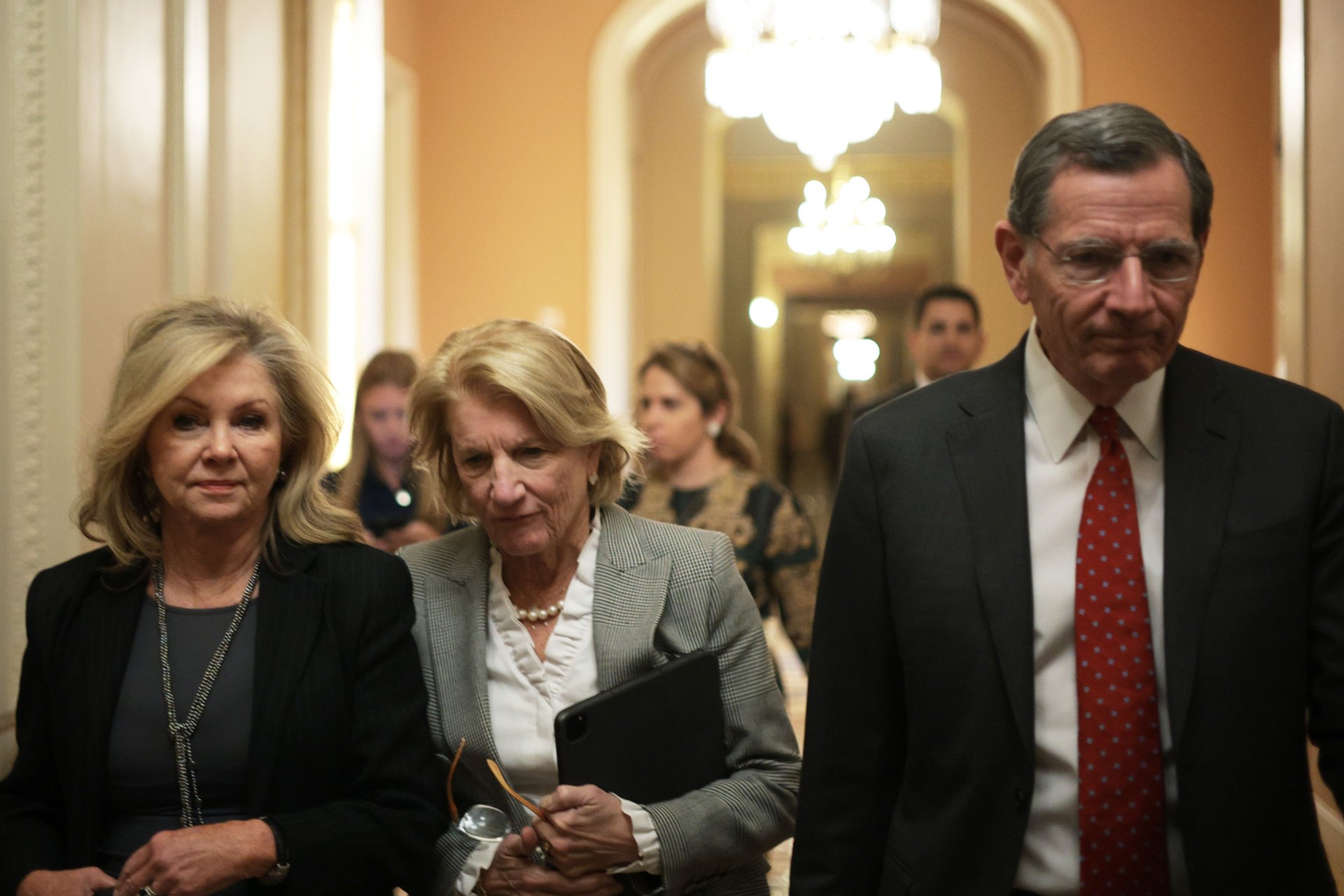Republicans nix controversial measure that would have blocked states from regulating AI
The provision stirred opposition from governors in both parties as well as state officials who warned the AI sector was escaping accountability

Sen. Marsha Blackburn (R-TN), Sen. Shelley Moore Capito (R-WV) and Senate Majority Whip Sen. John Barrasso (R-WY) walk through a hallway prior to a vote at the U.S. Capitol on February 18, 2025 in Washington, DC. (Photo by Alex Wong/Getty Images)
A controversial artificial intelligence provision was knocked out of the Republican megabill early Tuesday morning as it neared the finish line.
Suggested Reading
The measure would have prevented states from regulating AI if they received broadband funds from a $500 million federal pot of money. The Senate vote was 99 to 1, with retiring Sen. Thom Tillis of North Carolina as the sole supporter.
Related Content
"The Senate came together tonight to say that we can't just run over good state consumer protection laws," Sen. Maria Cantwell of Washington, ranking Democrat on the Senate Commerce Panel, said in a statement. "This also allows us to work together nationally to provide a new federal framework on artificial intelligence that accelerates US leadership in AI while still protecting consumers."
The provision stirred opposition from governors in both parties as well as state officials who warned the AI sector was attempting to get out of being accountable.
Sen. Marsha Blackburn of Tennessee spearheaded efforts to remove it from the bill, and an earlier compromise with fellow GOP Sen. Ted Cruz of Texas had collapsed overnight.
"This is a monumental win for Republican Governors, President Trump's one, big beautiful bill, and the American people," Arkansas Gov. Sarah Huckabee Sanders, an ex-Trump aide, wrote on X. She called it a win for states' rights.
Still, proponents argued that uneven treatment of AI at the state level is preventing the U.S. from competing more efficiently with China, another leading power. Congress hasn't been able to pass a sweeping AI policy bill given lingering divisions over the strength of regulations.
